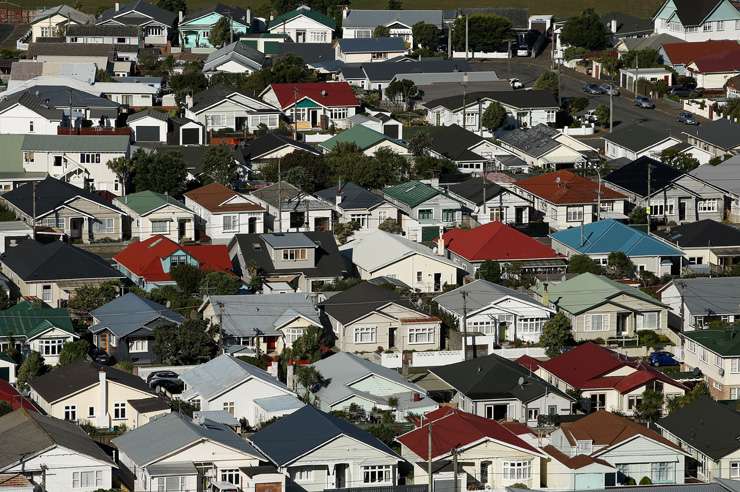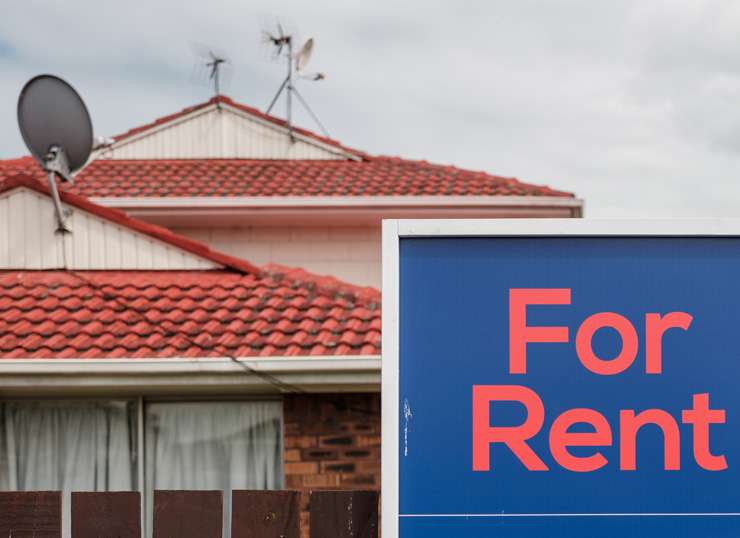An influx of people moving to Hamilton is creating a dire shortage in available rental properties with property management firms saying people are being forced to take whatever they can get.
Some of Hamilton’s largest property management firms have less than 1% of vacant properties on their books at the moment and often a large number of those are studios.
The biggest demand is for three to four-bedroom stand-alone family homes from both people moving to Hamilton and executive families who have been caught short on the building process and need to rent for six to 12 months.
Harcourts Hamilton Rentals managing director Melanie Rouse said their vacancy rate has been under 0.8% during winter, which is “ridiculous” given it is traditionally the quieter time of the year.
Start your property search
“Even in the suburbs that quite aren’t as desirable ... If you’ve got a stand-alone house, it will still rent and they are renting with decent rents. It’s just availability as people are realising, they are not going to get what they want in a better suburb.”
In October, her firm only had 14 vacant properties and a further 60 properties – half of which were studios – were advertised due tenants giving notice but still occupying them.
Along with studios, three-bedroom, two-bathroom townhouses are also taking a bit longer to fill due to them often having limited parking spaces, she said.
Rouse said the market was still sustaining any rent rises being passed on by landlords, who have previously resisted rent hikes but are feeling the pressure due to increasing interest rates and changes in the tax deductibility rules.
An average three-bedroom house in an average suburb in Hamilton rents for at least $550 a week, while a basic four-bedroom, two-bathroom home in Rototuna could net between the high-$700s to the low-$800s a week in rent.
“If they’ve (landlords have) got one of the properties that is desirable, it doesn’t matter if the tenant leaves because you are going to replace them at the higher rent that you are advertising at.”
The extra pressure is coming from people moving to Hamilton both from overseas and people within New Zealand including a number of Aucklanders relocating for a different lifestyle and schooling while still being able to commute a few days a week, she said. Executive families who have unexpectedly found themselves homeless due to building delays are also struggling to find rentals, especially as a number of them have family pets.
“We just don’t have enough property for the people that we’ve got and Hamilton is a cool place to live so people want to move here.”
Despite the growing number of properties Lodge City Rentals has been managing in the last few years, general manager Jason Waugh said they are still operating at around a 99% occupancy rate.
While they had been at this level before, this is the first time that it had been “virtually full” for a pro-longed period of time.
Of the 130 to 140 properties Lodge leases each month, about a third are out-of-towners with the majority of people relocating within New Zealand.

Houses in Lyall Bay, Wellington, where the capital is also experiencing pressures in its rental market. Photo / Getty Images
Waugh said with three and four-bedroom homes – especially in the sought-after north-eastern suburbs such as Chartwell, Flagstaff and Rototuna – in short supply, people are having to compromise.
Even a two-bedroom unit in Rototuna advertised last week attracted five people at the viewing and was rented the following day.
“People have just got to explore every avenue they have possible so whether that’s moving into a suburb they don’t necessarily want to be in or think they would be in or moving to a different size house – whether that be up or down.
“I think you will find that really people are just taking what they can get at the moment and that could well be looking at those outlying areas like Te Awamutu, Morrinsville, Cambridge because with the roading system now it’s a quick trip in for people into the city from those areas.”
A few weeks ago, his firm had more studio rooms for rent than any other property type, but most of these are now rented and Waugh said they are now short of properties right across the board.
“Hamilton is bucking the trend a little bit in as far as good occupancy rates and not an oversupply of properties.”
REINZ head of property management Joanne Rae said Hamilton is one of several regions outside of Auckland and Wellington that is under pressure for rental properties.

Tax changes introduced last year and interest rate rises are having an effect on the nationwide rental market. Photo / Ted Baghurst
Rae believed people are being drawn to the city for both its affordability and central location, which made it accessible for people wanting to work from home while still commuting to Auckland when needed.
“It’s got three tertiary institutes and a large hospital so they’ve got a large pool of people who generally rent and not buy.”
The rising interest rates may also be encouraging people to rent for a bit longer rather than buy, she said, and this could also be resulting in why there aren’t as many rental properties becoming available.
If demand continued through late November to early January, which is traditionally a quieter time for the rental market, then the situation could be much worse early next year as students start looking for properties again. “It would just exasperate it – can you imagine the competition.”
Property Brokers general manager of property management David Faulkner said they are not seeing the same overall shortage of rental properties in the provincial areas where they operate such as Manawatu and Hawke’s Bay, but there are people in the lower-income brackets who are struggling to find anything they can afford.
He warned that landlords coming off low interest rates of around 2% are going to be in for a “bit of a shock” and said this could put pressure on rents.
“But I’m not sure if there’s much more capacity for the market to increase higher rental increases due to just general inflation as such.”
















































































